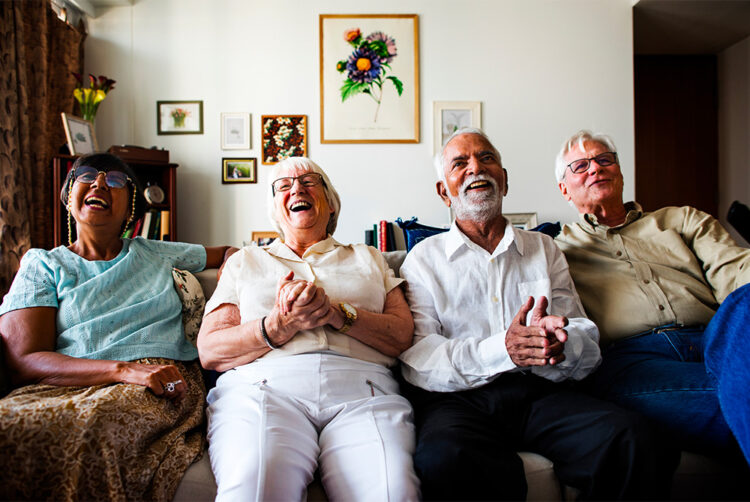‘Over-65s should be an advertiser’s dream’… so why aren’t they?

While younger generations may be increasingly more difficult to reach through traditional advertising, pensioners are revealed to be the most hostile of all as more media spend migrates online.
“[Over-65s] have money, they spend it, and they spend on discretionary items with high margins that can sustain advertising investment. And they happily try new things and experiment, which means they will brand switch or enter new categories.”
And yet, according to a new report launched today by independent media agency The Kite Factory, people aged over 65 are becoming increasingly difficult to reach through advertising.
This is particularly problematic, the Older, Wiser, Richer and Disengaged report warned, because over-55s are now a “staggering” two-and-a-half times wealthier than the rest of the population.
Despite over-65s outspending the average UK adult in most categories of goods and services, only 16% of them agree that advertising influences their purchase decisions, and only 9% enjoy ads on TV.
Among the findings of a survey by YouGov, over-65s are much less responsive to ads than people aged under-24, which runs counter to commonly-held beliefs that younger generations are “anti-advertising” compared to older generations.

Comparing over-65s to the under-24s, YouGov asked if advertising helps them choose what to buy, whether they enjoy it, and if it meets their expectations. Across the board, the under-24s were two to three times more likely to value and take pleasure in advertising. There is also a 330% gap between the older and younger generations when it comes to the influence of advertising on purchase decisions.
Even worse, over-65s not only fail to appreciate advertising, they also have a lower tendency to even notice it.

Christian Taylor, head of planning at The Kite Factory, said: “At its simplest, advertisers have been so wrapped up in targeting Gen Z and Millenials, that they have forgotten about the over-50s.
“20 years ago, the over-60s enjoyed and valued advertising just as much as the rest of us, but today that’s not true. They don’t enjoy it, and unfortunately don’t see its value.
“The over 50s aren’t just grandparents, they’re an adventurous and financially free demographic rife with potential, if advertisers meet them in the middle.”
According to the agency, there are four reasons why mature audiences are less engaged with advertising.
Media consumption has changed ‘drastically’ since 2005
According to Barb data analysed by Ofcom, the proportion of 16-24s watching live or recorded broadcast TV fell from 82% in 2016 to just 59% in 2021. Meanwhile, the proportion of over 75s watching TV stayed static at 97%.
Advertising investment has shifted to chase the young at the expense of the old
Back in the late 2000s, digital and TV had an equal share of the budget. Now, it’s a lopsided 4.5:1 ratio in favour of digital, the report said.
“UK advertisers have heavily favoured the Under-34 demographic in their spending. In 2021, advertising funds were mostly directed towards capturing the attention of the younger generation. The only exception is a small portion, still amounting to a couple of billion, allocated to print, which has seen a 50% decline in the past decade.”
Under-representation of over-50s in advertising
The over-55s watch twice as much television as the average adult but are 30% less likely to see themselves in the commercials on screen, the report said.
“For other audiences like Black British and LBGTQ+, when they see themselves in advertising, there is a “diversity dividend” of better attention, engagement and an uplift in emotional response. In the case of the over-55s, this was only partially true, though more accurate for older women, who are more even more poorly represented in ads than older men.”
Advertising has ‘lost its sense of humour’
The report also highlighted how “advertising has lost its sense of humour”. Research by Kantar found that in 2001 more than half of all ads used a funny or light-hearted tone. By 2020, this dropped to just over one-third.
The creative agency BMB has analysed every gold award-winning Cannes Lion campaign in the past decade and noticed a significant slump in humour post-2012. At this point, humour was replaced with ‘purpose’ as a different dominant strategy, leading to a proliferation of ‘do good’ advertising approaches as opposed to ‘feel good’.
***
The Kite Factory’s Older, Wiser, Richer and Disengaged report recommends that advertisers hire an appropriate number of older people (only 1% of all agency employees are aged over 60, for example), and that while overall audiences are declining on traditional linear channels, they still index strongly for over-50s.



